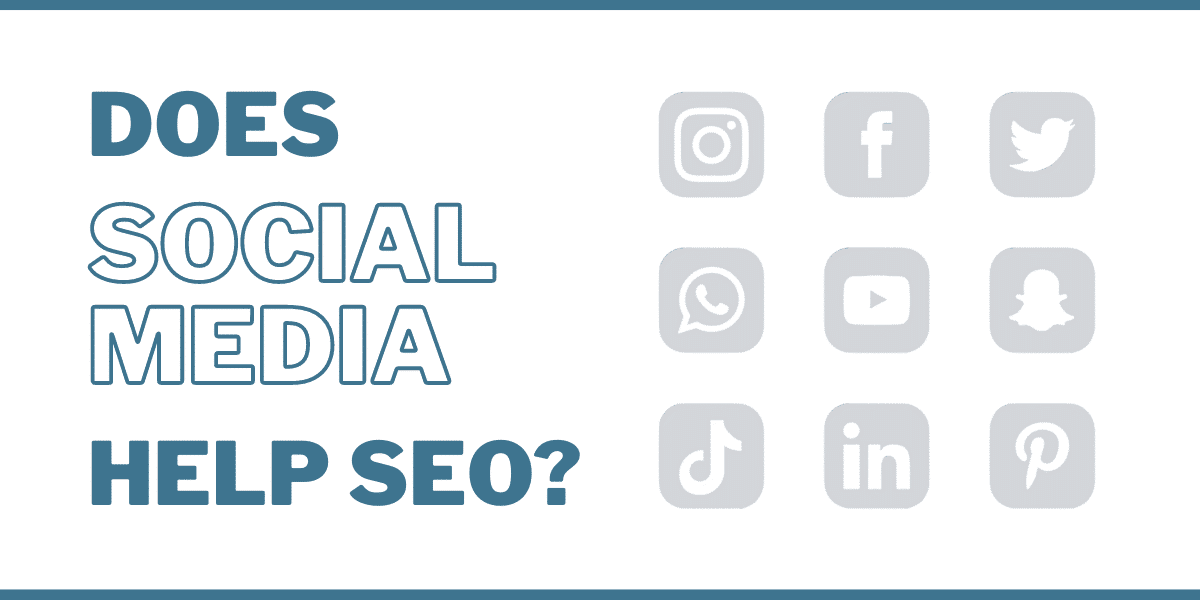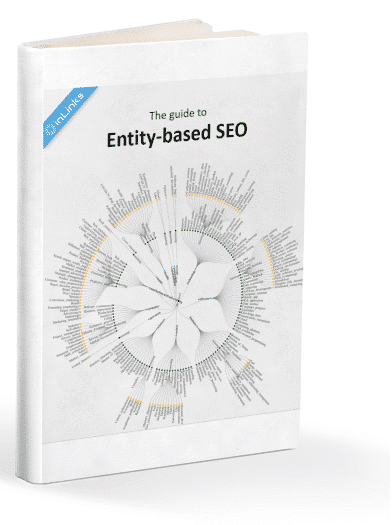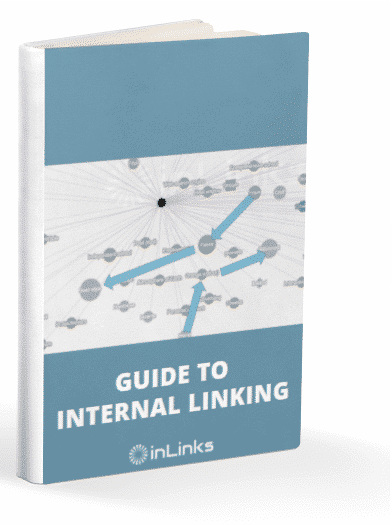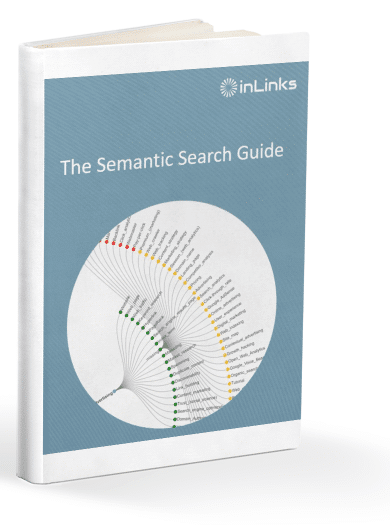Ask multiple SEOs if social media affects SEO in any way, and you might not get a straightforward response. This is not because of the cop-out answers marketers are known to give but because the relationship between SEO and social media is more complicated than a simple yes or no answer.
On their own, SEO and social media have benefits that feed into one another. For instance, SEO research data can help you understand your social audience. With this understanding, you can then create targeted content across all marketing channels. So, there’s clearly a connection between both channels.
But does the use of social media directly influence your organic ranking? We did our research and asked a few digital marketers to share how they combine SEO and social media.
Does social media impact SEO?
To answer this question, let’s look at the history between SEO and social media.
In 2010, Danny Sullivan reported that Google and Bing admitted to using social signals like tweets and retweets from authoritative people as organic ranking factors. However, four years later, while answering a question about social media signals and SEO, former Googler Matt Cutts said in a Webmaster help video that the search ranking algorithm puts no weight on signals from social media sites.
And he gave some interesting reasons –
- Social platforms like Twitter and Facebook blocked Google crawlers for over a month, making it impossible for them to crawl some social media pages.
- Social media links always have the nofollow tag, so they can not pass PageRank.
Particularly, Matt mentioned that if a page with a ton of social signals ranks highly on the SERPs, assuming such ranking results from the likes and shares on social is correlation, not causation. In other words, it’s more likely the content on the page is awesome. And due to its awesomeness, it’s able to rank on Google and also generate a ton of links, likes, and shares from social media.
Several companies have conducted research to understand the correlation between search rankings and social signals. A prominent example is this 2016 study by Cognitive SEO that analyzed 23 million social signals from Google+, Facebook, Pinterest, and LinkedIn. While they found that the top-ranking results on search had significantly more signals from those social media sites, they were still left with the question: “Is it the shares that lead to a better position, or do sites with a higher position naturally get more shares?”
The conclusion is this—social media has a relationship with organic search, but we can’t definitively say it influences rankings because Google does not consider social media a ranking factor. However, it’s likely that websites ranking highly on the SERPs have a solid social presence and publish great content across social platforms. Therefore, incorporate both channels in your marketing to drive growth.
Bill Gaule, the SEO strategist at Content Growth, agrees and says -“SEO and social media support each other in many ways. And when used together in a digital marketing strategy, they deliver excellent results for companies”
Five ways social media impacts SEO
While social media does not directly influence search ranking, social signals like shares, comments, and likes generated from sharing content across social media platforms help to build trust, brand awareness, and exposure. All this adds up and indirectly contributes to boosting your online visibility and traffic.
1. Social media can inform your SEO research
Social media is a great starting point for audience, keyword, or content research. Once you identify the platforms your target audience hangs out on, you can learn about their problems and goals and use this data to inform your SEO strategy.
Conduct social listening, follow hashtags and trends, and join conversations to discover keywords and content ideas your audience cares about. Doing so will enable you produce SEO content that satisfies searcher intent and also ranks.
2. Social media gives you visibility and traffic (quickly)
Ultimately, the goal of search engine optimization is greater visibility. Visibility is what leads to increased traffic, engagement, and conversion.
Unfortunately, SEO is a long-term game, and results are often not immediate. But by using social media in conjunction with SEO, you can fast-track the process. Case in point, social media can amplify your content, attract visitors to your website, boost content performance, and drive conversions.
Content marketing specialist Tereza Litsa testifies to this. She says, “My very first win from social SEO was getting a big traffic boost from Pinterest back to a client’s website by promoting the right content using the right format for the channel. And more recently, I used social media to amplify a blog post, and it led to significantly impressive results. Not only did the traffic to the blog increase, but I also noticed how easier it was to see a boost in the rankings (faster than the usual time for this client).”
As of this writing, the most popular social platform Facebook has 2.96 billion monthly active users. Consistently creating and distributing content on social media puts your brand in front of a global audience. If your content resonates, your target audience may engage and share it with their followers, who may do the same if they find it useful. This cycle of engagement and shares can lead to content virality, bring more visibility to your page and website and increase brand awareness.
3. The visibility from social media attracts backlinks
Problem-solving content is a magnet for backlinks (which are essential for SEO). But first, people have to discover this awesome content before they can link to it. Social media gives provides this visibility and makes link-building less labor-intensive.
It only takes one trusted creator or industry leader to find your content insightful and share it with their audience. And the more social engagement your content generates, the better your chances of earning backlinks from diverse sources without actively trying to build them.
4. It increases traffic for branded queries
Bill says – “Building awareness on social can translate into more branded organic traffic. In a 12-month period, one of our clients invested heavily in social. If we compare a 3-month period year on year in Google, branded searches went up 7x. That is 417 in 2023 vs. 61 for the same timeframe in 2022. Interestingly, backlinks increased almost seven times in this same timeframe (from 14 to 93).”
Branded search is not only about websites. Social profiles can show up for branded queries too. In the Webmaster Help video we referenced earlier, Matt Cutt mentions that Google treats social media pages the same way it treats regular websites in its index. So, social profiles can be included in the search result if they’re crawled.
Optimizing your social profile is an excellent way to secure more SERP real estate when people search for your brand. While most searchers might go on to your website, presenting an active and engaging social profile can show your business in the best light and convince those still on the fence to do business with you.
5. Social presence and optimized profiles build trust
Social media platforms like TikTok, Instagram, and Twitter now double as search engines. A 2023 study by Tint shows that 75.78% of customers use social media to discover new brands and products, while 68.75% have purchased something they found on socials. With today’s customers craving authenticity, social media is a surefire way to build trust with your audience.
As Tereza corroborates, “There’s a growing trend on TikTok where users now rely on the social channel to search for recommendations. This a massive opportunity for brands to go beyond traditional SEO and explore other ways to reach their customers.”
But it’s not only B2C businesses that benefit from social media. B2B brands can also reap the rewards provided they optimize their social profiles and show up consistently.
By posting content that resonates with your audience, you differentiate your brand from the competition and boost your online reputation. It’s also an opportunity to humanize your brand, engage with customers throughout their buying journey and give your audience a positive impression. All of which are important for SEO.
But it doesn’t end there.
SEO also supports social media
Done right, the efforts you put into creating and optimizing your SEO strategies can also support your social media marketing. Here are some ways:
1. SEO research provides insights for social media marketing
SEO is a demand capture channel and shows what your target audience is looking for. Use this insight to plan your social content for maximum conversion.
SEO keyword research gives you a broad idea of the kind of content that’ll resonate with your audience. A tool like InLinks uncovers the questions your target audience is typing into Google and the context of their search. It even shows you the specific intent they have while searching.
From here, you can use social posts to confidently address these concerns and build authority on your preferred platform.
The data from SEO removes the doubt and second-guessing so you can create the right social content.
2. SEO serves as a content workhorse
“At our agency, we use blog posts to inform the social media content calendars we create for clients,” says Bill Gaule of Content Growth. “A typical blog post can be sliced and diced into seven tweets, two LinkedIn posts, two emails, infographics for Pinterest, and answers on Quora. It’s even better if the content is evergreen so you can repurpose them every few months”, he explains.
Repurposing your content on social media increases its lifespan, saves content ideation time, drives traffic to your website, and helps with consistency.
For instance, SEO topics can become Youtube videos, TikToks, Instagram reels, or other snackable, shareable content without writing blogs and articles. Here at InLinks, we regularly host knowledge panel sessions to discuss crucial SEO topics our audience finds interesting. We make video and audio versions and share them on Youtube, the InLinks blog, and social media. This helps us keep our social and search content engine well-oiled and running. Plus, it ensures consistency in the brand message and image.
3. Use Technical SEO to track your social performance
Google Analytics and tracking URLs enable you monitor how traffic from social media interacts with your website. Whether you’re driving traffic from TikTok, LinkedIn, or Facebook, ensure to install and configure the correct tracking codes on your website so you can monitor and optimize your performance.
Additionally, SEO tactics like schema markup help you define your social profiles to enable search engines show correct information about your business on the SERPs.
Now we understand the ways SEO and social media help each other, let’s look at how you can make both channels work together seamlessly.
How to make social media and SEO work together
To combine SEO and social media effectively, it’s essential to view them as an extension of each other. Sure, both can perform excellently on their own. But the magic happens when you integrate both channels. The synergy between them can amplify your brand’s visibility, foster meaningful connections with your audience and drive revenue for your business.
Keep the following tips in mind as you put SEO and social media to work.
1. Always create meaningful content
Whether it’s on Google or Twitter, people want to see meaningful content. So, concentrate on producing content that is useful, shareable, and relevant to your target audience. Resist the temptation to post irrelevant content for virality’s sake. You’ll be better off driving a few relevant visitors and backlinks from social media than a multitude of irrelevant visitors and worthless links.
2. Align your social content with keyword research
As I mentioned earlier, keywords reveal the topics your audience is interested in. Use the data you gather from keyword research to inform your social media content ideas. Let your content address those topics, questions, and concerns important to your audience. This does not mean that your social posts should be bland. You can find creative ways to add a fun and relatable spin to your posts.
3. Optimize your social profiles
“When searching for a brand or an individual, their social profiles appear on the SERPs. This means you need to optimize your channels to show the best version of your brand. So I always review all social profiles to optimize them for the keyword the brand wants to be found for,” says Tereza.
Apart from adding keywords to your social profiles (where it makes sense, of course), make your profile look professional. Include links to your website and contact information, and use the appropriate schema.org markup to define your social profiles so Google can show them on the SERPs.
4. Make it easy for people to share your content
Add social media share buttons in every blog post so visitors can share your content with their audience.
As you write blogs, try to include custom images with 80% visual and 20% text in your content. These kinds of images do well on social media and easily attract backlinks. Images can be quotes, charts, or exciting statistics pulled from within your post but make sense on their own.
When you post content on socials, use engaging captions. Make your content interesting, bite-sized, and helpful. And don’t forget free resources like templates and checklists that can elicit large amounts of shares.
5. Be consistent with your branding and message
Bill believes that great SEO often results from a strong brand. He says,
“If someone finds you through socials and goes on to your website, they should see consistency in your content. You shouldn’t look professional on social media and unserious on your website.”
SEO and Social media are essential for the modern-day customer journey
Social media and SEO are good channels for communicating and interacting with your target audience. Combining them creates a synergy that reinforces the other and yields beneficial marketing results.
To Bill Gaule –
“SEO and social media are complementary channels and can very much be the first point of contact a customer has in their journey. Businesses can use social media to create demand and reach people who aren’t solution or problem aware. They can then capture that demand using search by ranking for content that provides solutions to those ready to make a decision. But because customers can enter their journey at any point, optimizing both channels enables you to be present for your customers wherever and whenever they begin their journeys.”
| 💡→ Check out InLinks’ new social media tool to help you create captivating social content, establish authority in your niche, and support your SEO efforts. |
| This post was researched and drafted by Juliet John and reviewed and edited by Dixon Jones. |




Thanks for sharing this article! It’s really informative and timely, especially now that there are different social media platforms that are used by the lot.
Regardless of the effects of social media on SEO, these two should go hand in hand if an increase in ROI and business growth is what we are after, somehow it is business after all.
Thanks again!
Leave a Reply
Want to join the discussion?Feel free to contribute!